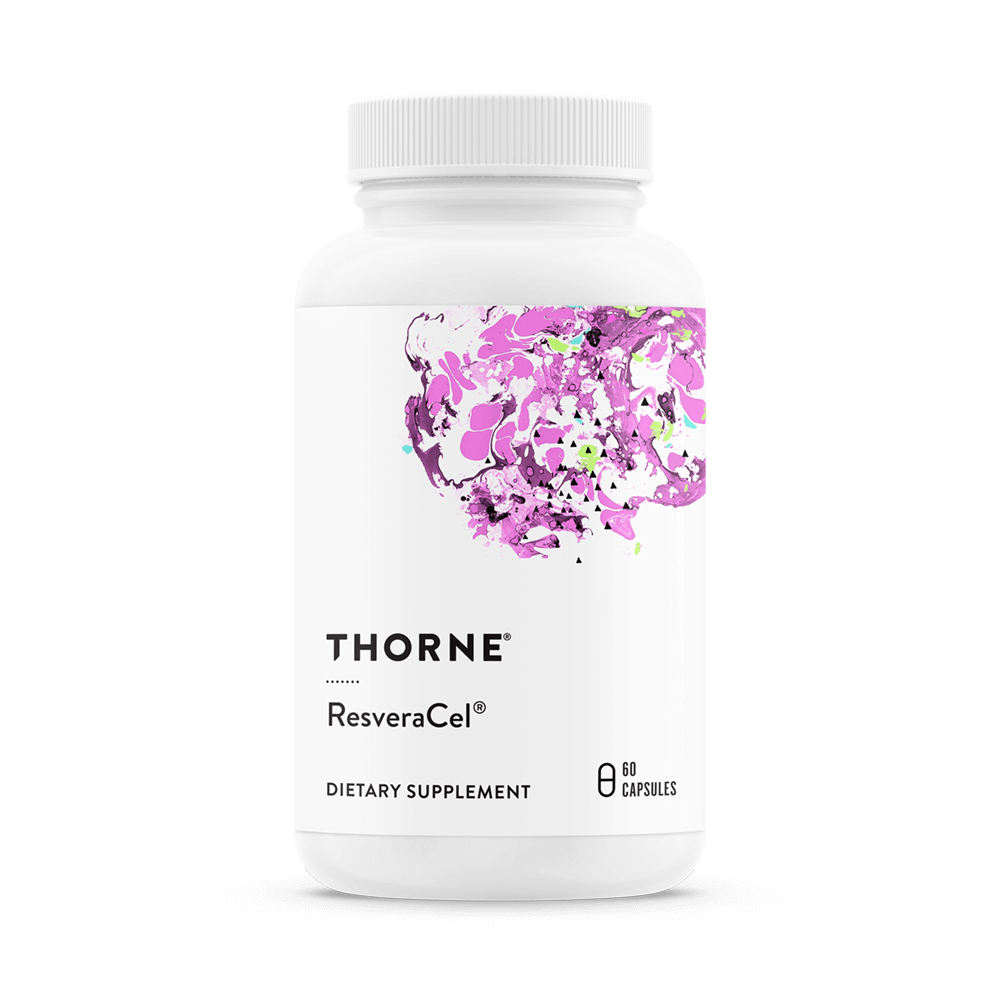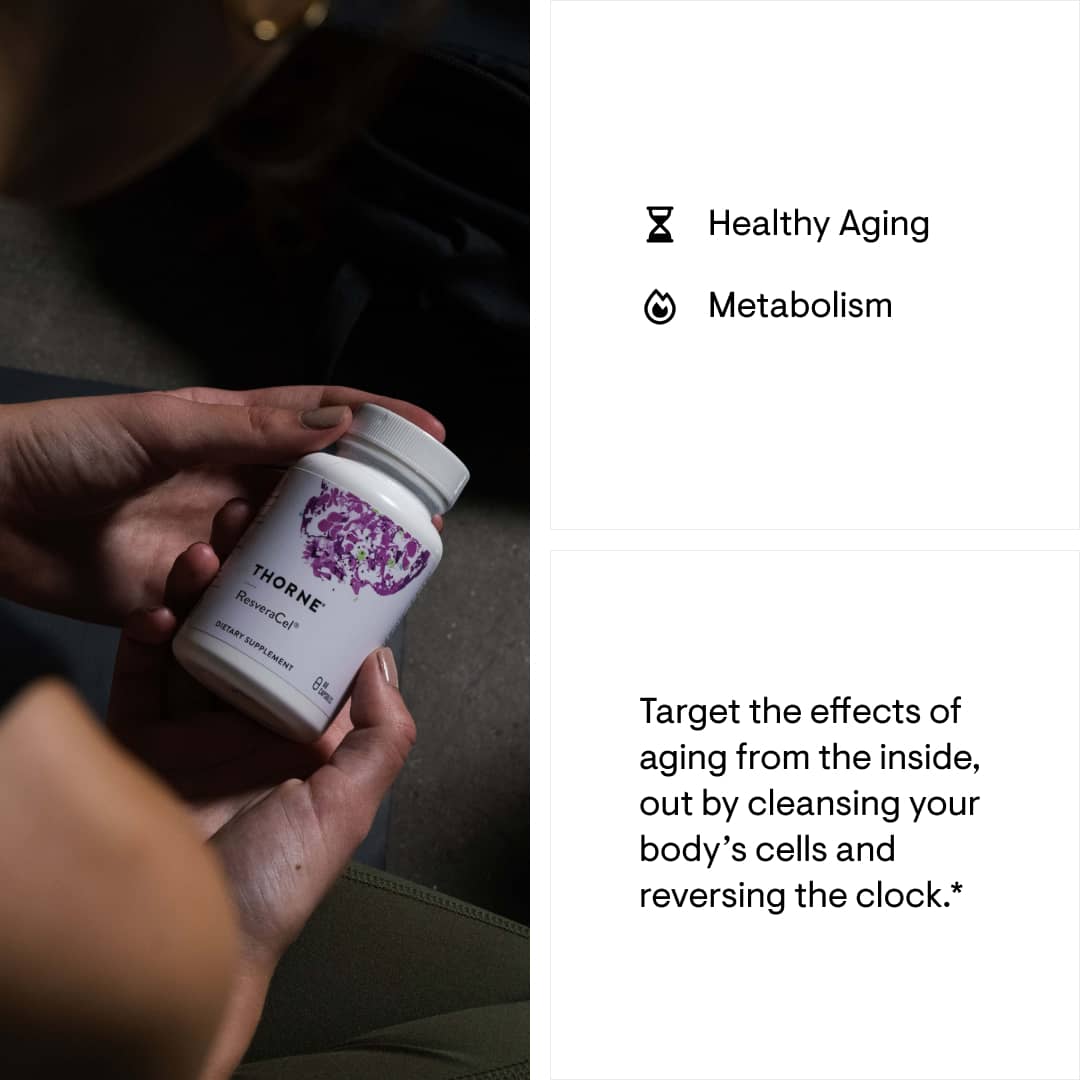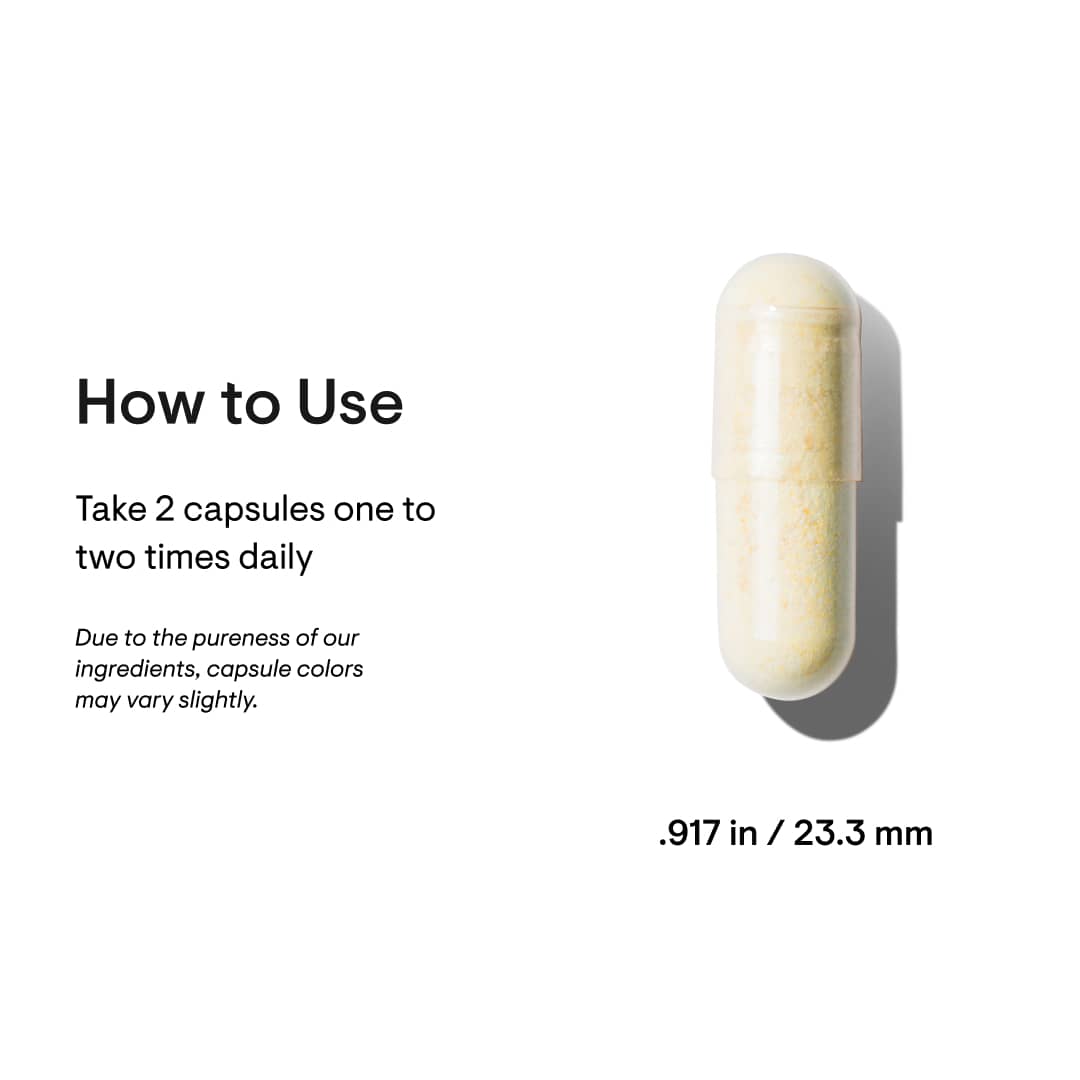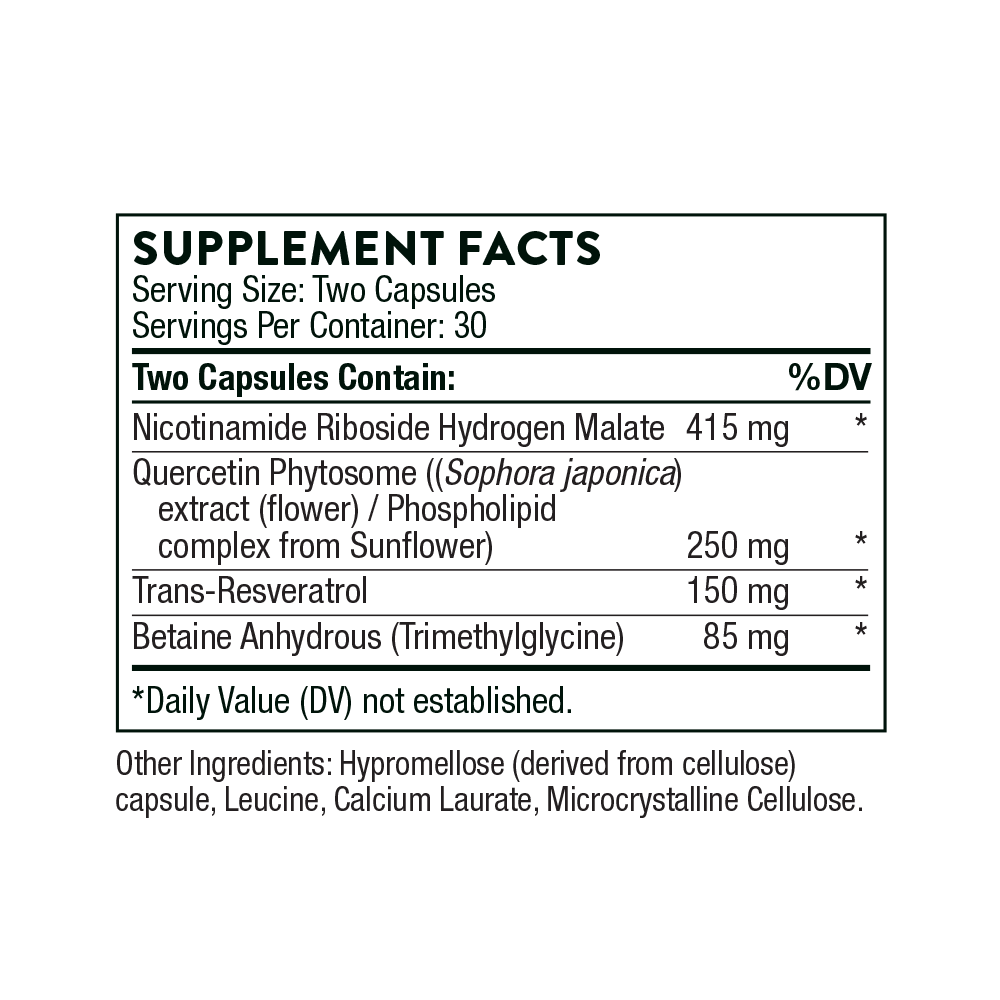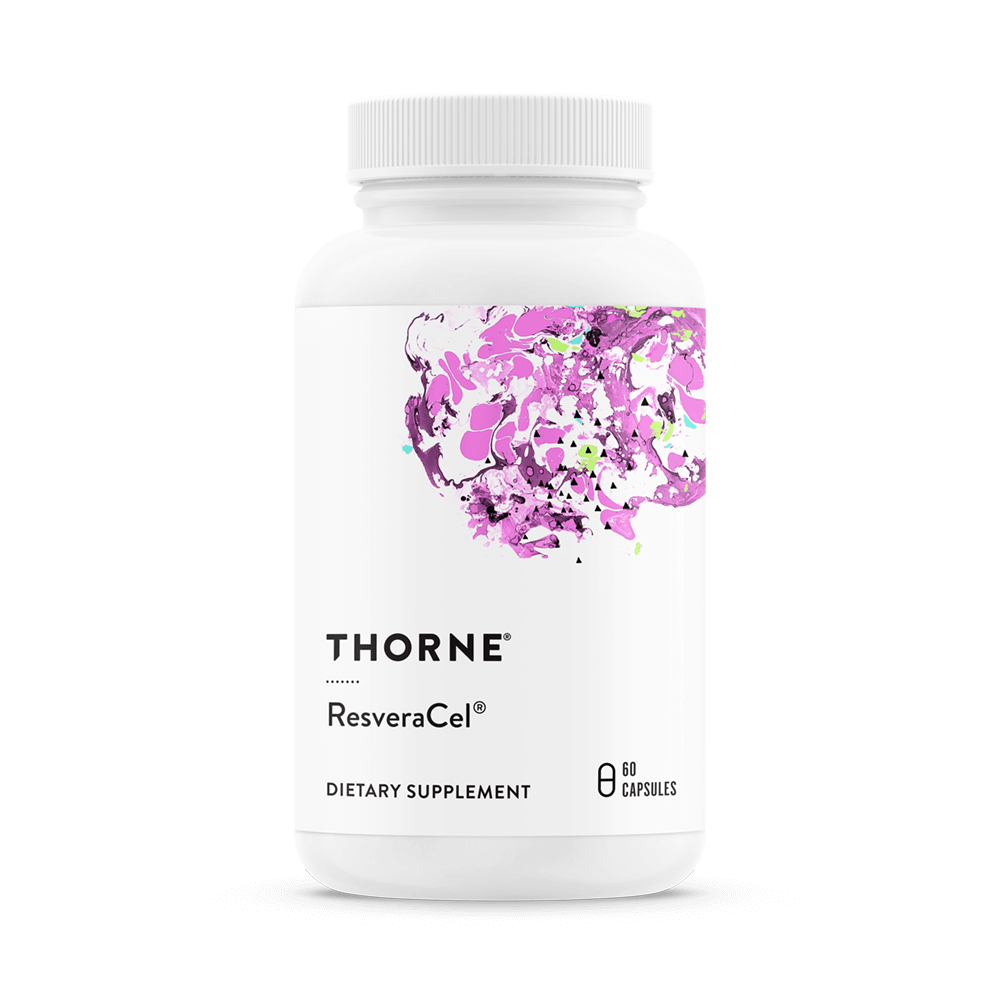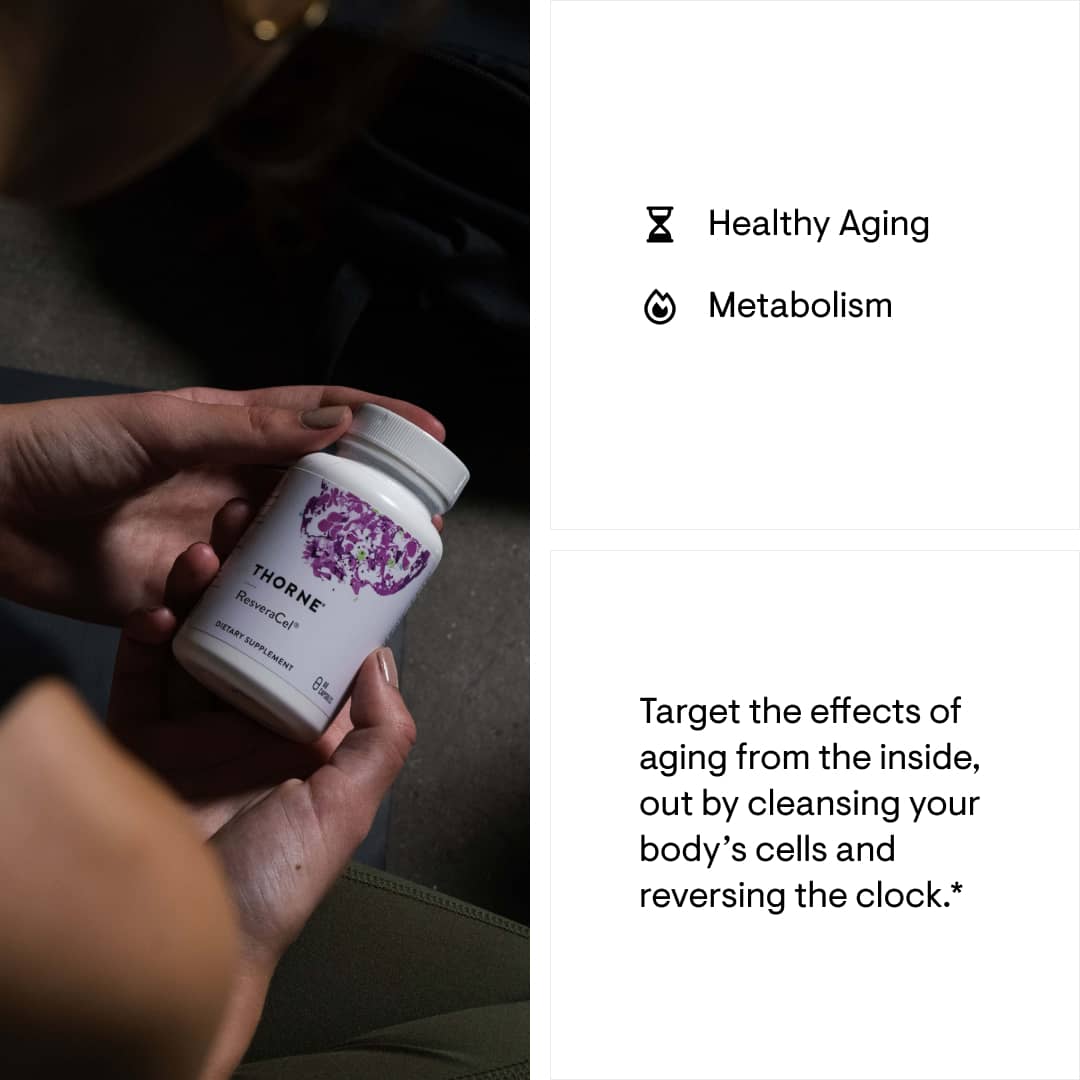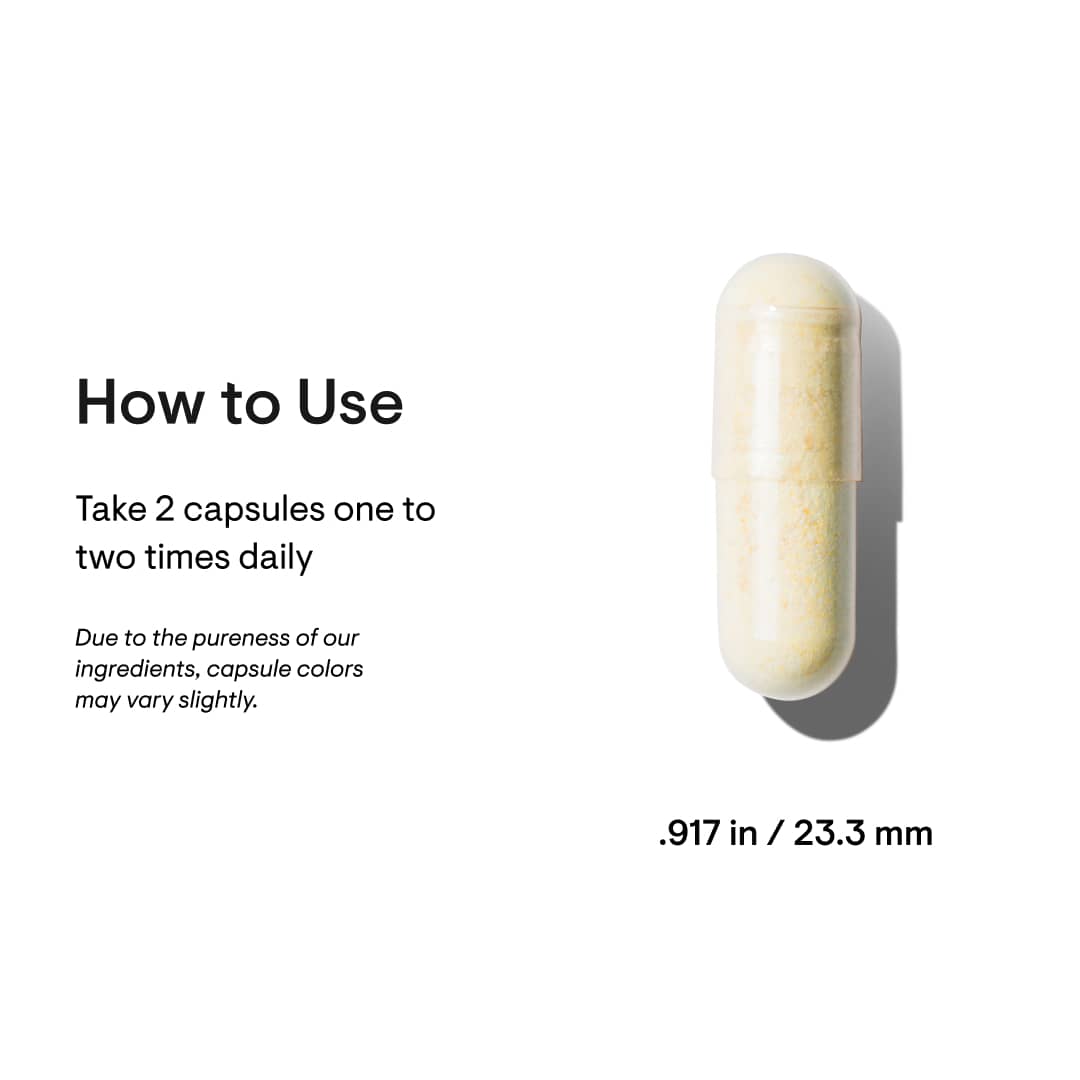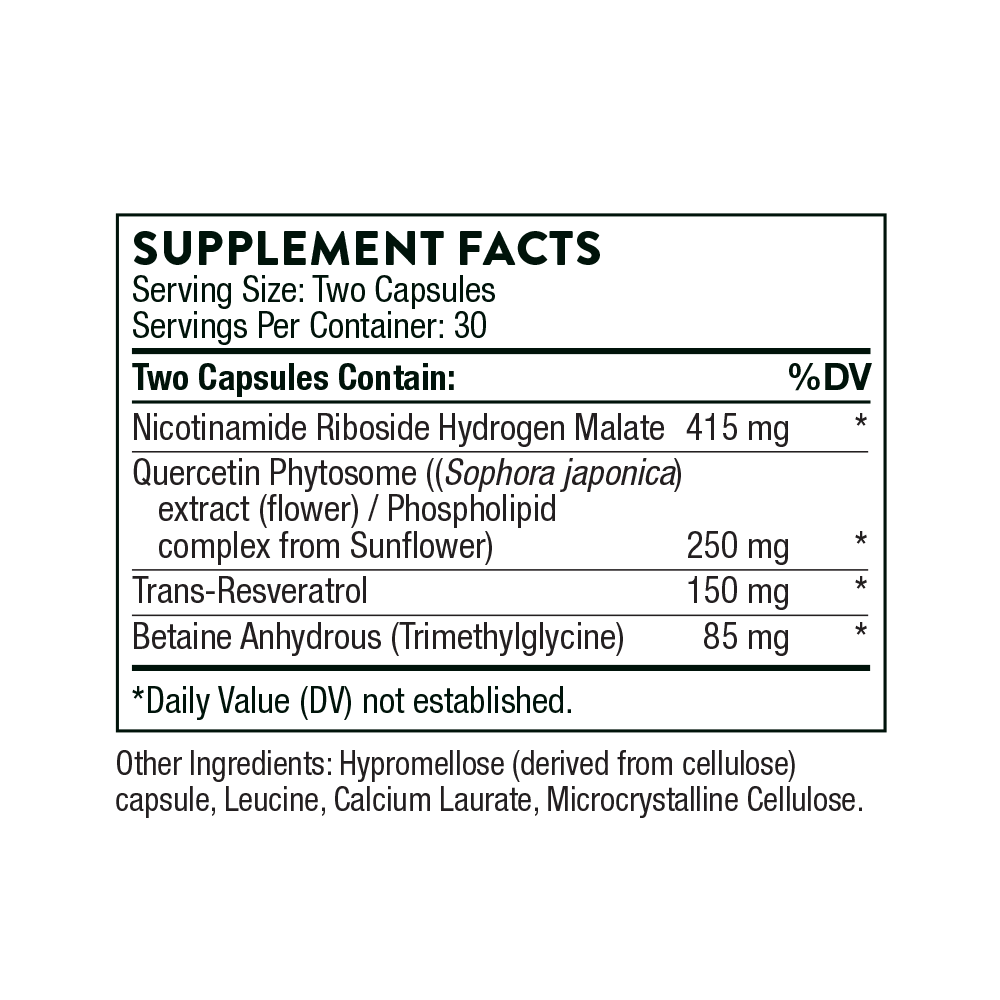Thorne
ResveraCel®
ResveraCel®
Couldn't load pickup availability
Thorne's ResveraCel supports cellular repair, up-regulates the sirtuin proteins, enhances NAD+ production, and benefits the cellular energy production that takes place in the mitochondria – thus supporting the process of healthy aging.*
Adding ResveraCel to your daily supplement regimen can make a positive impact on aging and support good health as you get older.*
Benefits of Thorne’s ResveraCel:
- Supports healthy cellular aging*
- Natural activator of the sirtuin proteins, an important class of protein enzymes that act as cellular switches to up-regulate numerous positive functions associated with aging*
- Helps clean the body of old cells, by assisting with the elimination of aging cells (inactive, senescent)*
- Supports optimal mitochondrial number, structure, and function*
- Supports healthy methylation*
- Enhances cellular energy production*
- Promotes healthy metabolism as you age*
- Benefits healthy blood sugar and insulin sensitivity*
- Supports fat metabolism in the liver*
Take an inside look at the intelligent ingredients in ResveraCel and their beneficial impacts on healthy aging:
Nicotinamide Riboside Hydrogen Malate (NR)
NAD+ – nicotinamide adenine dinucleotide – is an important coenzyme found in every cell that plays an integral role in multiple body functions. Because the body’s natural level of NAD+ begins to decline significantly with age, it can lead to adverse effects of aging and age-related conditions. As a direct precursor to NAD+, NR efficiently stimulates the production of NAD+, which:
- Promotes multiple aspects of healthy aging*
- Supports cellular repair processes*
- Protects against DNA damage and oxidative stress*
- Promotes exercise efficiency, helping to support health and fitness goals*
- Helps maintain an optimal state of health*
- Promotes the number and health of the mitochondria in cells, benefiting mitochondrial metabolism*
- Supports normal circadian rhythm function*
Resveratrol
Resveratrol, a natural substance found in, among other things, red wine, has shown promise in clinical studies by modulating the effects of several age-related conditions, including:
- Supporting the body's normal inflammatory response and its health-promoting effect on blood vessels*
- Activating a special class of protein enzymes called sirtuins that act as cellular switches by up-regulating numerous positive functions, including cellular aging, inflammatory response, detoxification, stress resistance, fat and glucose metabolism, circadian rhythm, and mitochondrial biogenesis*
- The sirtuin proteins support the formation of new mitochondria in the cells, which results in more efficient cellular energy production and possibly increased longevity*
Quercetin Phytosome
Senescence is the natural process in which aging cells stop dividing, but do not die. The over-accumulation of senescent cells is associated with biological aging and various age-related disorders. Quercetin is at the forefront of healthy aging because:
- Quercetin is one of only two nutrients that have been studied for its ability to reduce cellular senescence*
- Quercetin partners with resveratrol in the quest for healthy aging because it slows the breakdown of resveratrol in the body, allowing resveratrol more time to do its job*
- Quercetin up-regulates the sirtuin proteins, which are associated with healthy cellular aging and improved weight-related metabolic factors*
Betaine
To achieve NR’s optimal benefit, it is important to support the body’s methylation processes. Betaine is a premiere methyl donor because:
- Betaine (also called trimethylglycine) is a superior nutrient for donating its methyl groups – compounds that help produce healthy DNA, neurotransmitters, and cellular energy*
- In female athletes, research indicates that betaine promotes lean body composition by helping to reduce body fat without negatively affecting muscle mass*
- Betaine supports the body’s ability to engage in higher volume exercise – increased repetitions and weight load in male athletes and improved high volume work capacity in female athletes*
Share
